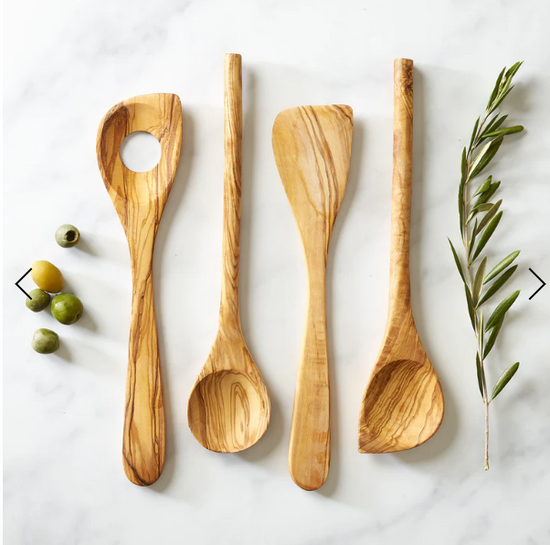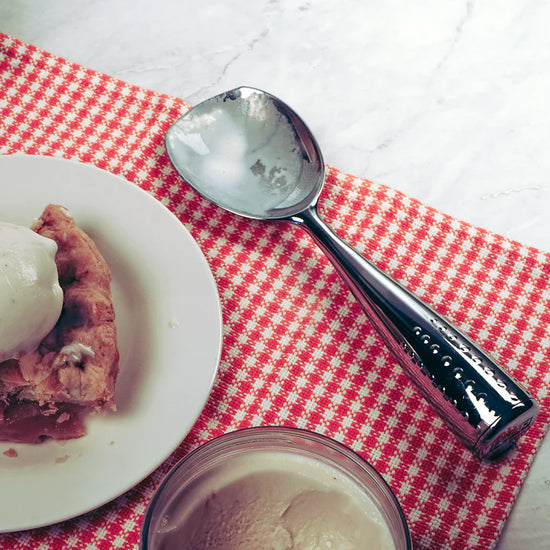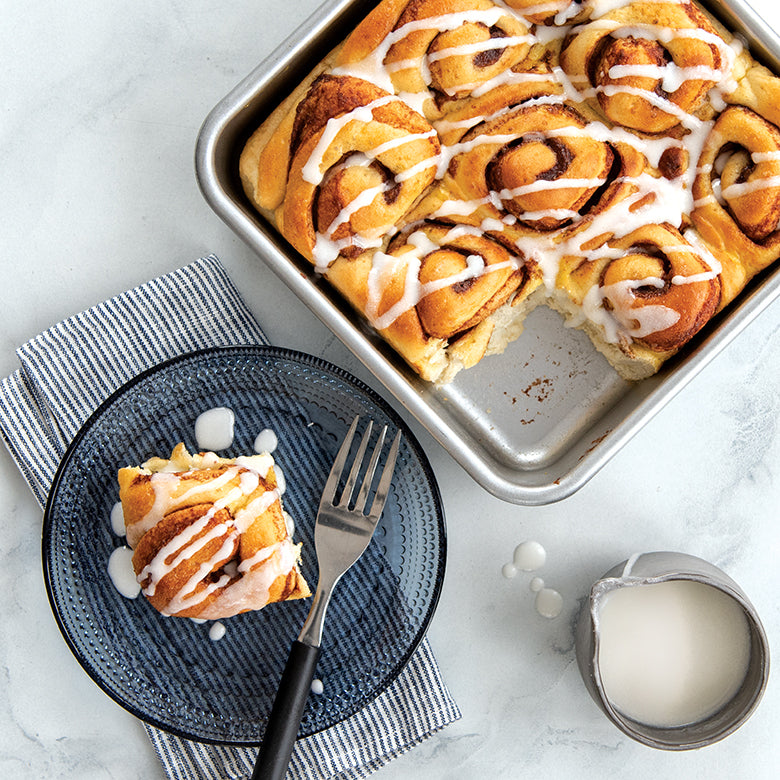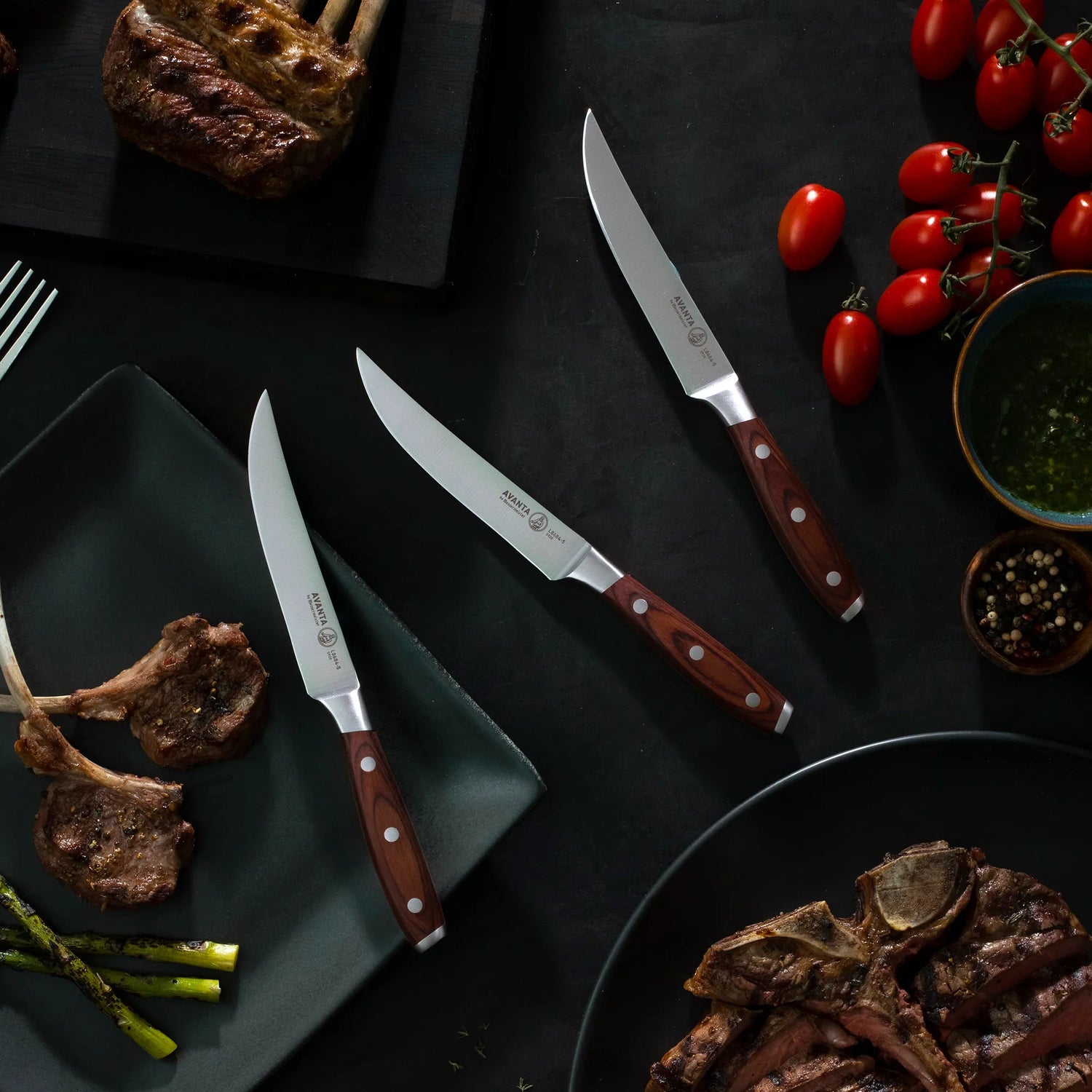Care & Cleaning
Taking good care of your kitchen tools helps them perform better and last longer. Here you’ll find simple, trusted tips for cleaning and caring for cookware, bakeware, and tools made from a variety of materials — so you can protect your investment and enjoy every meal with confidence.
-

Wooden Tools
To maintain wooden tools, hand-wash with warm soapy water, rinse, and dry completely. For cutting boards, scrub with salt before washing. Apply mineral oil to prevent cracks. Store cutting boards upright to avoid warping.
-

Wood Cutting Boards
Cutting boards usually require deeper cleaning, so rub them with salt to scour them before washing and drying. Wiping down bowls and cutting boards with mineral oil replaces the oil in the wood so it doesn't crack. Store cutting boards standing on their edge so they don't warp.
-

Cast Iron
Wash cast iron by hand in warm water and a touch of soap. If food sticks, use a pan scraper, or simmer a little water to help loosen tougher spots. After rinsing, dry the pan well. A little dark residue on the towel is just seasoning and not unusual. To finish, apply a light coat of oil and wipe it down until the pan looks dry and smooth.
-

Nonstick Cookware
Nonstick pans require hand-washing with hot, soapy water and a mildly abrasive cloth sponge.
High heat and metal utensils can crack the nonstick coating, so only cook over medium heat and use plastic or wooden utensils. Avoid stacking nonstick pans, which can cause scratches in the coating
-

Stainless Steel
To keep stainless steel performing at its best, always preheat your pan and add oil just before cooking. Avoid high heat, and wash with warm water and mild soap. Remove stuck-on bits with a simmer-and-scrape method or a baking-soda paste, and polish occasionally with a stainless steel cleaner to maintain shine.
-

Stainless Steel, Nickel-Copper Alloy, Nickel, or Chrome-Plated Metals
Wash thoroughly and polish with a fine-powdered cleanser. If hardware is broken so that base metal is exposed and rusted, wipe it with kerosene. Then wash and dry the surface. Wax after each use to prevent further rusting.

Aluminum Pans and Utensils
Cleaning
Wash thoroughly with hot soapy water. Scour any unpolished surfaces, such as the insides of pans, with soapy steel wool pads. However, do not scour plated aluminum surfaces because it might remove the finish. Sanitize in a bleach solution (1 tablespoon of unscented chlorine bleach per gallon of warm, not hot, water). Dishwasher-safe, but avoid harsh abrasives that can scratch the surface.
To remove dark stains from aluminum pans, fill the pan with water. Add 1 tablespoon vinegar or 2 teaspoons cream of tartar for each quart of water. Boil for 10 to 15 minutes, scour with steel wool, wash with soap, rinse, and dry.

Knives
Cleaning
Stainless Steel Knives - Wash knives in hot, soapy water. You can air-dry stainless steel knives.
Carbon Steel Knives - Wash knives in hot, soapy water. Carbon steel can rust so make sure to dry these knives immediately after washing and rinsing.
Care
Storing knives in a block or sheath prevents accidents and helps maintain the blade's edge.
Using a cutting board when chopping prevents knife blades from dulling. Wooden cutting boards are preferable because plastic dulls blades more quickly.
Avoid placing them loose in the sink because other dishes in the sink can nick or dull the blades.
When using steel, hold the blade at an angle to the steel rod, and draw it down the length of the rod, sliding the knife so the blade passes over the rod from handle to tip. Repeat the process several times on both sides of the blade to sharpen it evenly.

Ceramic Cookware
Everything you need to know about ceramic cookware. Learn how to cook with it, clean it, and keep it performing beautifully for years to come.

Carbon Steel Cookware
Everything you need to know about caring for your Carbon Steel pans—seasoning, cleaning, and storage tips included.






